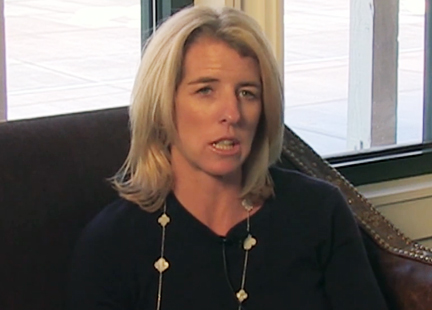
- Interviews
An Interview with Rory Kennedy
She has tackled subjects from AIDS to violence against women, from terrorism to war. She has won an Emmy for The Ghosts of Abu Ghraib and another six awards for her work. Her most personal film was last year’s Ethel in which she explored her mother’s life. Now she has brought her most recent work, Last Days In Vietnam to the Sundance Film Festival. In it she tells the story of how American military, diplomats and aid workers got 77,000 South Vietnamese out of Saigon in 1975, something that was against US policy which was to just get Americans out of Vietnam and back to safety in America. Remarkably, very few people know what happened in those final days. “In my mind it’s a really extraordinary story of heroism and courage,” says Kennedy, sitting on the couch in the backroom of the Music Lodge on Main Street. She is rushing from interview to interview, always gracious and grateful that some members of the Sundance press actually made an effort to see her documentary before they interviewed her. “It’s a film that says, this isn’t just isolated history, but is giving insight as we’re drawing from Iraq and Afghanistan and considering other wars, Syria and other places. Really thinking what is the exit strategy, what happens when you leave a war, what happens to the people that are left there. And what happens to your collaborators, the people in the CIA, the translators, the cooks, the drivers. All these people who worked for the Americans are very vulnerable.” She says she sees history repeating itself: “I am all for getting out of Iraq and Afghanistan but what I have a greater sensitivity for now, after making this film, is looking at the increase of violence and wondering what is going to happen to these people who helped us. Don’t we have a responsibility to them? In wars as in relationships you have certain responsibilities, and I don’t think we want to be a country who abandons people who have helped us. It’s important to think that through on a very basic human level.” She is not a big fan of the notion that documentaries are not as effective in telling these stories as a feature, just because movies reach wider audiences. “I can’t deny that you get a bigger audience, but it’s dangerous to get your history from dramatic films given the creative licenses that they take, and they won’t let the facts get in the way of telling a good story.” Growing up Kennedy, it seems one cannot escape politics. Whether it is by actively getting involved in government or having a social and political conscience imprinted from an early age: “We were raised with it, you couldn’t really avoid it. There is no one in my family who is not doing something that helps others. Because we are grateful for all that we have and were told from a very young age that we had to give back.”
Elisabeth Sereda

